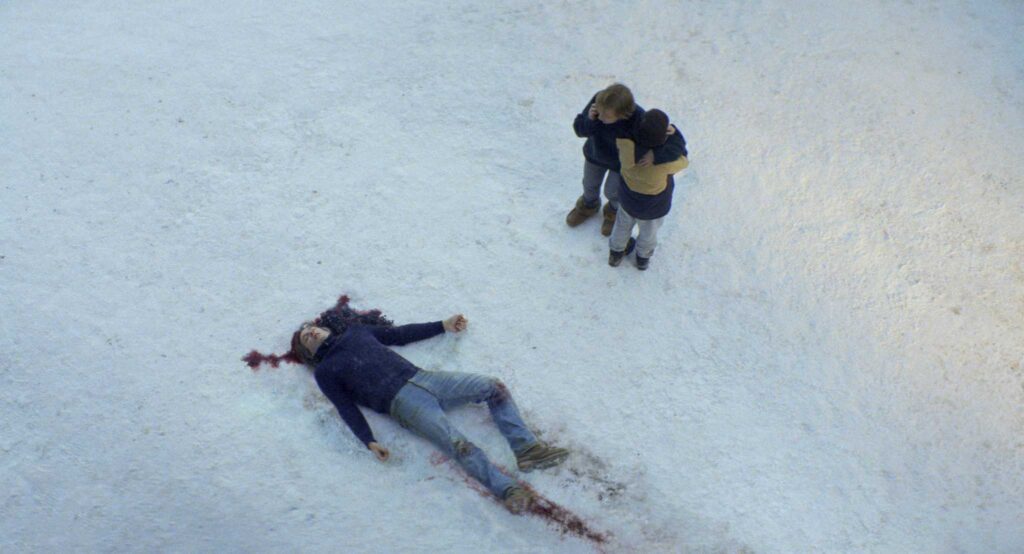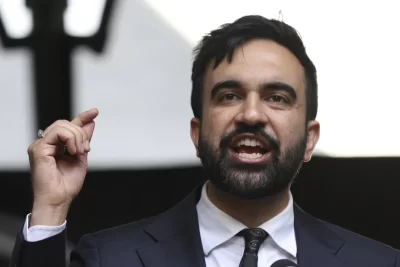
This image released by Neon shows, from left, Samuel Theis, Sandra Hüller and Milo Machado Graner in a scene from "Anatomy of a Fall." (Neon via AP)
Of all the ways that a relationship can end, a fundamental disagreement about a work of art is in some ways extremely silly. And yet, a film or a book exposing an irreparable rift in a love that perhaps wasn’t as compatible, as symbiotic or as caring as one might have thought is also, somehow, as good a reason as any. Maybe it will even, eventually, provide a funny story.
Another, more excruciating, way for a relationship to end is with one party falling off the roof of a house to their death, followed by a humiliating public trial to determine the fault or innocence of the other, as happens in Justine Triet’s Palme d’Or-winning “Anatomy of a Fall.” And just like “The Corrections” before it, it seems that “Anatomy of a Fall” might be the new litmus test for modern relationships. See it with a romantic partner at your own risk. But, from my perch, this is one that’s worth the debate(s) it provokes.
Sandra Hüller, the German actor known for “Toni Erdmann” and, soon, “ The Zone of Interest,” is Sandra, a writer living in a chalet in the French Alps with her husband, Samuel (Samuel Theis), and 11-year-old son, Daniel (Milo Machado Graner). Triet thrusts the audience into a tense and stressful atmosphere, introducing us to Sandra in the midst of an interview with a grad student, a woman, which will become significant later. Sandra is a little prickly and sipping a glass of red wine while deflecting questions back at her interviewer. It is hard to focus on what they’re saying, however, as an instrumental version of 50 Cent’s “P.I.M.P.” blares through the household on a deafening, constant and maddening loop. Samuel’s choice, apparently.
The student leaves, Sandra waves goodbye from a balcony, 50 Cent still playing, glass of red still in hand and Daniel, who is blind, heads out for a walk with his dog. He returns to find his father on the ground outside, dead and bleeding out. Sandra’s lawyer, Vincent (Swann Arlaud, a calming presence), later analyzes the fall trajectory and finds the cause of death “inconclusive.”
“Stop,” Sandra says. “I did not kill him.”
It’s one brief exchange that could sum up the 150-minute film, which is a smartly constructed and wholly engaging whodunit, courtroom thriller, marriage drama and, at some points, satire. This is not really a tearjerker, but a visceral dismantling of a life that’s either happening in the wake of a tragedy or a murder. Either way, it’s uncomfortable to watch Samuel’s sharp, merciless advocate (Antoine Reinartz) grill Sandra about their marriage troubles and why, in his mind, that makes her a likely suspect. She’s also accused of doing it for material for her books.






